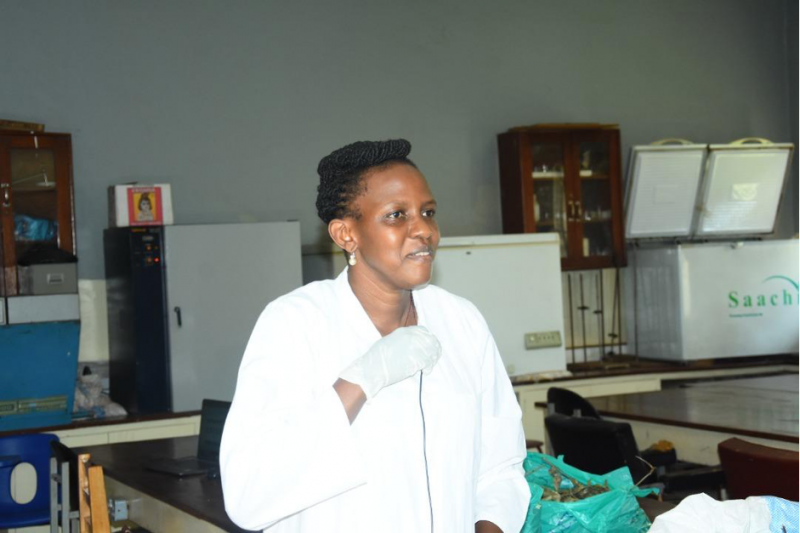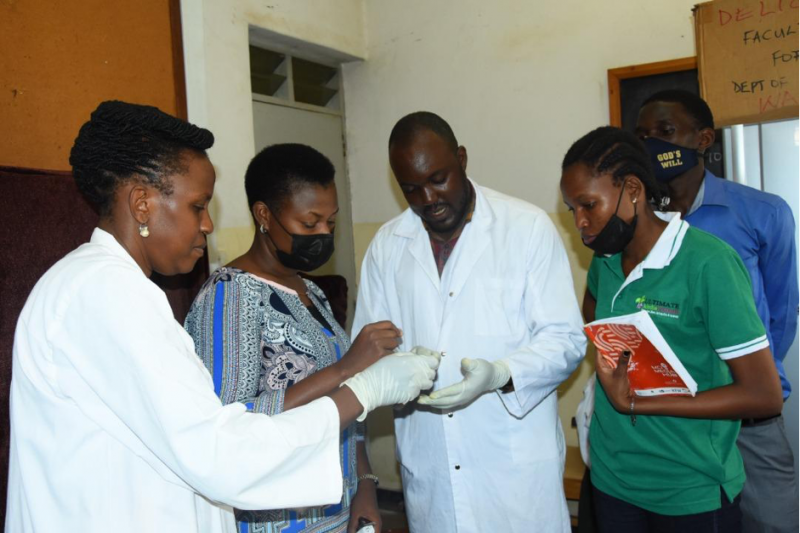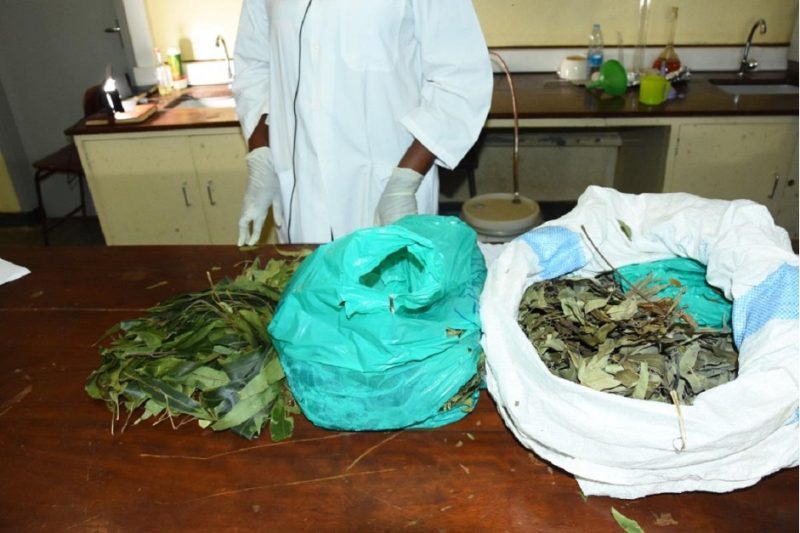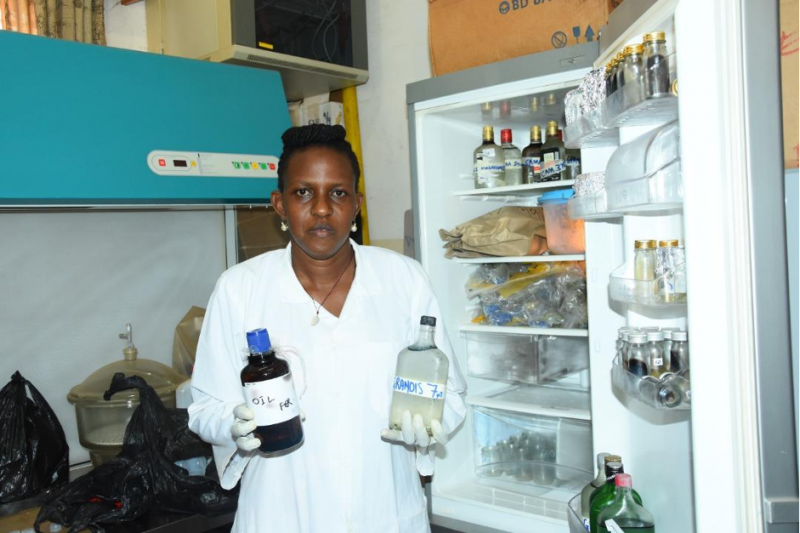
For years now, people have concentrated on getting firewood and timber from eucalyptus trees, leaving the leaves to decompose. Some go as far as burning the leaves to clear their fields.
Recognising that the leaves also have benefits, Dr. Simon Kizito and Dr. Christine Nagawa, both lecturers in the Department of Forestry, Biodiversity and Tourism, College of Agricultural and Environmental Sciences (CAES) at Makerere University, came up with an innovation to use essential oils from eucalyptus leaves to kill maize and bean weevils.
Dr. Nagawa, a co-principal investigator for the project, says eucalyptus leaves can be used to make a natural pesticide, which would solve the problem of farmers’ use of chemicals that are harmful to humans.

Dr. Christine Nagawa, one of the project’s principal investigators
“This project aims at responding to the farmers' harvest problems through the use of the natural preservatives that are slightly harmless to crops and to human beings,” she says. “Our main target are farmers in rural areas and regions, who are willing to take it up. We also plan to train the farmers on how to prepare and use the chemical.”

Dr. Nagawa and Dr. Kizito (middle) explaining how the oil kills the weevils
The leaves for the sample were collected from Hoima, Fort Portal and West Nile region. Different regions have unique climatic conditions and hence produce different qualities of essential oils.
“We also made sure that we collect leaves of different [ages] to get the components that can kill all pests. Since we collected them during the lockdown, we preserved them by sun-drying and freezing,” says Dr. Kizito.
He explains that the oil is obtained through fractional distillation (steam) and the final product is an aerosol. “Apart from essential oils, we also get raisins from the back of the pines,” Dr. Kizito says.

Eucalyptus leaves that have been preserved for a year by freezing (the green leaves on the left) and by sun-drying (in the white bag).

Dr. Nagawa displays the oil they have so far collected from eucalyptus leaves
Dr. Nagawa says the project’s objectives have been partially met, since the team has already been able to collect the oil and to conduct partial analysis of the compound, although they have not yet formulated the product. She adds that formulation is being done from other laboratories because of delayed procurement of the equipment. She says sometimes they have to use the government chemists’ laboratory, which slows down their work since it is used by many other researchers. Due to procurement delays, the team also had to improvise a distiller.
To ease the process, Dr. Kizito recommends decentralized procurement and seeking extra funds from elsewhere to supplement what the government provides.
The two principal investigators are grateful to the Government of Uganda for the initiative to promote science, and to the Makerere Research and Innovation Fund (Mak-RIF) for overseeing the project.
By Sarah Aanyu




